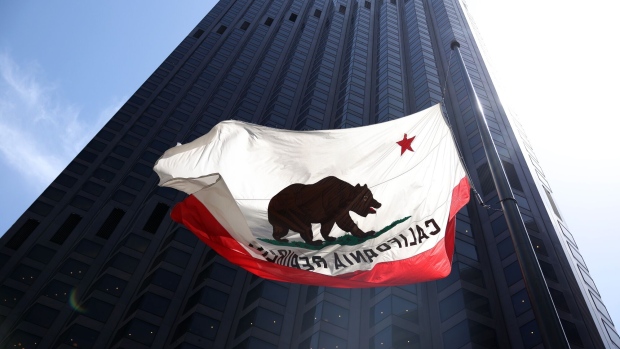Oct 10, 2023
California Will Again Weigh Single-Payer Health Care in 2024
, Bloomberg News

(Bloomberg) -- California state assemblyperson Ash Kalra is preparing to reintroduce a bill early next year that would create a program known as CalCare to provide the same package of health-care benefits to all residents and make the state solely responsible for reimbursing providers. This time around, the effort has more momentum, but still faces a number of obstacles.
With hundreds of billions in new costs saddling the state, California would need to raise taxes to finance the program. New taxes require approval from a two-thirds majority of lawmakers, a feat even in a state with a Democratic supermajority. Governor Gavin Newsom, who backed single-payer health care during his campaign, declined to comment on the proposals.
“There’s an overarching uncertainty in the global economy right now,” Shannon McConville, a research fellow at the Public Policy Institute of California, said in an interview. “There’s a way in which single-payer makes sense, but the federal government has to be a partner and a major player in this,” along with unions and doctors and hospitals.
The pandemic gave fresh eyes to the shortcomings of the American health system, long known for outsized costs without commensurate outcomes, and for the gulf between institutions and patients with resources and those without. The latest salvo manifested in the largest health-care strike in US history when more than 75,000 workers for California-based Kaiser Permanente walked out earlier this month.
A report issued last year by a commission appointed by Newsom concluded that a universal system would save both employers and households money and estimated California’s health-care spending will grow by 30%, or $158 billion, in the next nine years if a single-payer system isn’t instituted. Laurel Lucia, who consulted on the report and directs the health-care program at the UC Berkeley Labor Center, estimates the state could save more than $200 billion in the first decade with a single-payer plan.
“We can’t afford to sustain the current system,” Lucia said. “We have to do something very different.”
The Plan to Fund
Universal-health bills passed the California legislature in the 2000s but were vetoed by then-governor Arnold Schwarzenegger, but more recent versions failed to collect enough legislative support. Kalra rescinded his version of the bill last year because it couldn’t garner enough votes.
“We took a little pause this past year to continue to build momentum on it as well and allow for a new class of legislators to be elected, which happened,” Kalra said. “I feel confident that once we put forward the full policy, we will get a majority of my colleagues on board.”
Kalra has proposed funding a plan through various taxes including payroll, excise and personal income assessments. But adding or increasing levies requires not only legislative approval but a nod from residents, a tall order especially when the state is seeing $6-a-gallon gas prices.
California would also need federal permissions to redirect the more than $200 billion it receives from the national government for health care each year, according to the state report. Newsom last week signed into law a measure that would put the state on a path to obtaining those waivers toward establishing a universal statewide system. The measure introduced by state senator Scott Wiener could maintain the role of insurance companies.
A few other states have introduced universal-health bills, along with some municipalities, and Vermont’s legislature approved a plan in 2011 that was never instituted after the governor said financing it would be too costly.
Newsom had campaigned supporting a single-payer program in 2018 and appointed the commission the following year, but didn’t take a public stand on Kalra’s bill. The proposal was opposed by doctor, hospital and insurance groups and the state’s chamber of commerce, which said it wasn’t affordable, would diminish the quality of care and kill jobs.
©2023 Bloomberg L.P.





